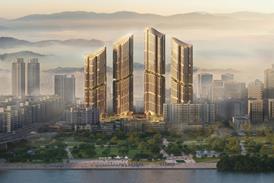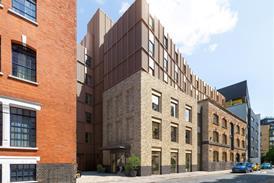Hackitt ‘at risk of missing critical recommendations’
The RIBA has written to Sajid Javid raising serious concerns about the direction of the Hackitt Review into the Grenfell disaster.
It is worried that some of its key recommendations will be overlooked in the final report due out next month.

It said: “The RIBA is concerned that the current approach of the Independent Review of Building Regulations and Fire Safety will not result in the lasting change needed to protect the public.
”The government and the construction industry must take the opportunity to reform the way that all buildings are designed, procured, built, managed and maintained to ensure the safety of building users, including in relation to fire safety.”
The RIBA’s Expert Advisory Group on Fire Safety, set up following the tragedy, is urging the communities secretary to make sure that Dame Judith’s report includes a ban on flammable cladding, require sprinklers to be fitted and ensures there is a second means of escape for high-rise residential buildings.
The chair of the RIBA’s Expert Group and the institute’s immediate past president Jane Duncan expresses worry that the current set of proposals under consideration by Hackitt will not provide clarity for professionals or deliver assurance for the public.
She said: “The RIBA has engaged closely with Dame Judith and her review and we welcome many of the suggestions made in her interim report to strengthen the building control system.
“However, we fear that the current set of proposals under consideration overlooks simple but critical changes that would provide clarity for professionals and most importantly, would help protect the public.
“Sprinklers, a second means of escape and a ban on flammable cladding for high-rise residential buildings are common-sense recommendations, and a basic requirement in many other countries.
“We have written to the secretary of state making clear that there must be a thorough re-writing of the building regulations and guidance on all aspects of fire safety, to avoid continuation of the regulatory failings that lead to the Grenfell Tower fire.”
The institute did welcome the suggestions in Hackitt’s interim report that there should be clearer definition and allocation of statutory duties, increased independent oversight of construction quality and better building control enforcement.
See the attached pdf for more information.
RIBA’s 4 recommendations
The RIBA’s four key recommendations for baseline prescriptive requirements to provide clarity for professionals and to protect the public are:
:: External walls of buildings over 18m in height to be constructed of non-combustible (European class A1) materials only;
:: More than one means of vertical escape from new multiple occupancy residential buildings over 11 metres high, consistent with current regulations for commercial buildings (which are arguably lower risk);
:: Retro-fitting of sprinklers / automatic fire suppression systems to existing residential buildings above 18m from ground level in height as “consequential improvements” where an existing building is subject to “material alterations”;
:: Sprinklers/automatic fire suppression systems in all new and converted residential buildings, as currently required under Regulations 37A and 37B of the Building Regulations for Wales.
Downloads
18 04 03 irbr phase 2 riba submission
PDF, Size 0.31 mb













3 Readers' comments